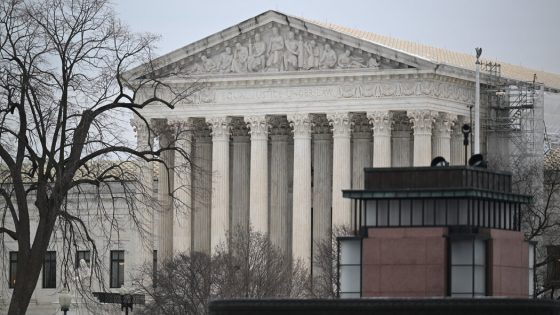The Supreme Court appeared ready to reject a legal theory that limits lawsuits against police officers for excessive force during a session on January 22, 2025. The case originated from the fatal shooting of an unarmed Black man, Ashtian Barnes, during a traffic stop in Texas in 2016.
- Supreme Court may reject restrictive lawsuit theory
- Case involves death of unarmed Black man
- Focus on "moment of threat" debated
- Justice Gorsuch questions narrow focus approach
- Traffic stop linked to unpaid tolls incident
The case under consideration stems from an incident involving Ashtian Barnes, who was pulled over by Officer Roberto Felix Jr. of the Harris County Constable’s Office due to unpaid tolls associated with the vehicle he was driving. During this routine traffic stop, which took place on April 2016 outside Houston, Barnes was shot and killed by the officer. The event has raised significant questions about how courts evaluate police use of deadly force.
During discussions, justices expressed concern that focusing solely on “the moment of threat” before a shooting could unfairly restrict accountability for police actions. Justice Neil M. Gorsuch highlighted this sentiment by stating that everyone agrees such a narrow focus is incorrect and questioned what harm there would be in acknowledging this issue more broadly.
- Ashtian Barnes was 24 years old at the time of his death.
- The car he drove had license plates linked to another driver’s unpaid tolls.
- This incident reflects ongoing debates regarding police accountability and excessive use of force in the united states.
The implications of this case could significantly impact future lawsuits against law enforcement officers accused of using excessive force. A broader interpretation may allow courts to consider more context surrounding incidents rather than limiting evaluations to immediate threats alone.
This potential ruling from the Supreme Court emphasizes critical considerations about how law enforcement actions are scrutinized legally and may set important precedents for future cases involving excessive force claims against police officers.

































